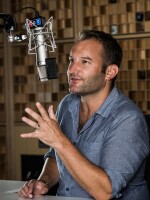STEVE INSKEEP, host:
This is MORNING EDITION from NPR News. I'm Steve Inskeep.
RENEE MONTAGNE, host:
And I'm Renee Montagne. President Bush today announced that all detainees in military custody around the world, including those at Guantanamo Bay, are entitled to protections under the Geneva Conventions. The announcement follows the Supreme Court ruling at the end of this past term that the Bush administration overstepped its authority in setting up military tribunals for the detainees.
Joining me now is NPR's White House Correspondent David Greene. And, David, how did this news come out, or how did it come about?
DAVID GREENE reporting:
I think you could call it a backhanded announcement in a way. It wasn't something that President Bush came out and talked about. He was talking about the economy this morning. And White House Press Secretary Tony Snow came into the briefing room and was asked about whether there's a memo that exists written by Deputy Defense Secretary Gordon England.
He did say it exists. He said that he doesn't know a lot of details. But he suggested that this is a memo that applies to manuals for treating detainees, at the Pentagon how they are treated; and suggested that, indeed, all of the people in military custody around the world were going to be entitled to protections under the Geneva Conventions. He said a lot of the details he's going to leave to other White House officials. And in time, the White House will be working with Congress and releasing more. But he did confirm that this memo from Gordon England does exist and seems to apply to everyone in military custody around the world, including at Guantanamo.
MONTAGNE: I want to bring another voice into this conversation, David. NPR's Jackie Northam. She covers detainee issues for NPR. Jackie, how big of a departure is this?
JACKIE NORTHAM reporting:
Well, you know, as David was just saying, all these details are just coming in now, so I want to premise my answer on that, if I could. But if this is correct, this is huge, Renee. Because the lack of Geneva Conventions in places like Guantanamo has been on the thorniest problems that the administration has faced as it conducts its war on terror. If it is true, if what we're seeing -one of the key questions that comes up is will these people now be prisoners of war, as compared to enemy combatants.
The government came up with this term - the Bush administration came up with this term enemy combatants. It had never, you know, been on the books before. And the rules under, you know, how prisoners were treated who were labeled enemy combatants was really unclear and developed as the war on terror developed, the so-called war on terror.
So this is going to be one of the key things is to see what this means for the people at Guantanamo. And one of the key things there, of course, is how they're treated. You know, under the Geneva Conventions, there's no such thing as - you're not allowed to have aggressive interrogations, which there's been a lot of allegations coming out of places like Guantanamo about that type of thing. And abuse and torture, that sort of stuff not allowed under the Geneva Conventions. So that's one of the things that will change if, in fact, all this is true.
MONTAGNE: Jackie, what are the things - give us an example or two of the things being done at Guantanamo that would violate the Geneva Conventions.
NORTHAM: Again, these are allegations, and the government has never come out and said these things have happened. Things like waterboarding, which is a form of interrogation which makes it seem that the prisoner is drowning. You know, a highly aggressive form of interrogation, that type of thing. You know, stress positions, overloading sensory perceptions, that type of thing. These are things that are not - simply not allowed under the Geneva Conventions. So if, in fact, the administration says we will apply the Geneva Conventions, then obviously this is going to change how things are done down in places like Guantanamo.
MONTAGNE: And back to you, David. What do you think compelled the White House to make this change now?
GREENE: Well, they've been in a tough position, Renee, since the five to three Supreme Court decision on military tribunals. You also have hearings beginning on Capitol Hill on tribunals. It seemed like the White House has been realizing in the last few weeks they just don't have anywhere else to go, similar to when John McCain passed some legislation last year that President Bush felt compelled to support, when it comes to treating detainees.
And Tony Snow, it was incredible the extent to which he tried to downplay this. This is not a reversal in policy, we want to get it right; we've always respected humane treatment. So it's interesting my colleague, Jackie, talking about how really important this is. The White House message, though, at least, is this isn't a big deal; we've always respected the rights of detainees. But clearly this is a shift and one that is very important.
MONTAGNE: Thank you both very much. That's NPR's David Greene and Jackie Northam. Transcript provided by NPR, Copyright NPR.








